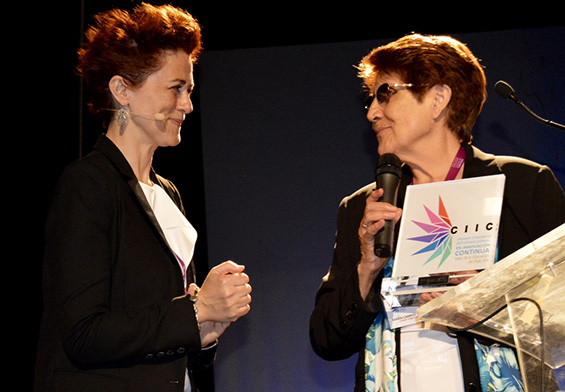
In June 2014, the teachers at the Virgen del Remedio School (Alcorcón, Madrid) would never have believed it if they were told they were going to win a prize for ongoing innovation and earn a quality certificate the following year. They had just experienced a tough blow through the loss of their baccalaureate course due to a lack of students wanting to enrol. Three people had lost their jobs. Morale was very low.
That was the scenario facing María Begoña Peña Lang, professor from the Bilbao School of Industrial Technical Engineering Business Organisation department, on her arrival at the school. She came armed with a restructuring plan for the school based on both her prior experience as a director and the research she was undertaking.
However, people are the essential ingredient to implement any innovation within an organisation. As such, María Begoña stood before the different stakeholders and explained each point of the restructuring plan for the school, based around four core aspects: Internationalisation, personalised care, mission/vision/values, and teaching innovation. There were 4 phases to the project over four years, and it required the support of the persons involved (teaching and non-teaching personnel, and parents).
A crisis can make everyone think for themselves and find the way to abandon ship before it sinks. There are occasions, however, when it drives everyone to pull in the same direction. This is precisely what happened at the Virgen del Remedio school. Every stakeholder in the educational community supported the restructuring plan. The response was both enthusiastic and hopeful.
As such, the project slowly started to progress. Talent management in the organisation has proved to be an important aspect. María Begoña held personal interviews with every person involved: “This is the first time we have been asked what our aspirations are”, they stated. “When you tap into a person’s talents, rather than simply their qualifications, the motivation... well, it is really something,” reflected María Begoña on the support she received from all the persons from the school.
In June 2015, the school organised the Inaugural International Congress on Continuous Innovation in the Alcorcón Buero Vallejo Theatre. The entire event organisation took just a month, and alongside a lot of work by teachers, Euskoiker were responsive in their management. Foreign speakers attended, such as Arto Kuusisto, the European Union Director for Corporate Quality, as well as local representatives such Alfonso González, President of the Open Education Association, or Diana de Horna, known for her blog “This is not a school”. The core topic of the congress involved establishing connections between universities, companies, and schools: “Today in the classroom, tomorrow in the company”. The new educational project was presented in this forum and aroused the interest of all those present. The school ended up receiving their quality certificate from Bureau Veritas, with 354 points, ten days after the congress.
These two positive achievements were recognised by both parents and students. The baccalaureate course has returned in 2015, which has breathed confidence into the educational community. The new baccalaureate course also forms part of the internationalisation project and will include a range of mobility options based around the Erasmus programme. Many parents who were previously against mobility options for their children are now in favour of this model.
In María Begoña’s own words, the projects connecting company (the school in this case) and university “are essential for the type of research I do. Management theories are very good in books, but you don’t see how they work until you put them into practice... I need to see an impact from what I do, that theory can be put into practice and how it can be applied better”. Being able to collaborate with companies away from the university is “like having a live laboratory. It is essential for generating knowledge.”
Do you need an expert? Contact us
What is the benefit of contracting projects with companies?
¿Cómo puedo contratar proyectos con la Universidad?
Euskoiker has more than 30 years of experience managing all kinds of projects